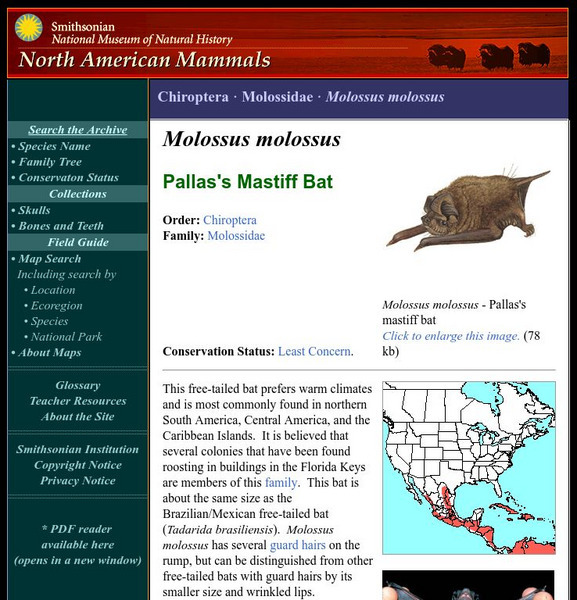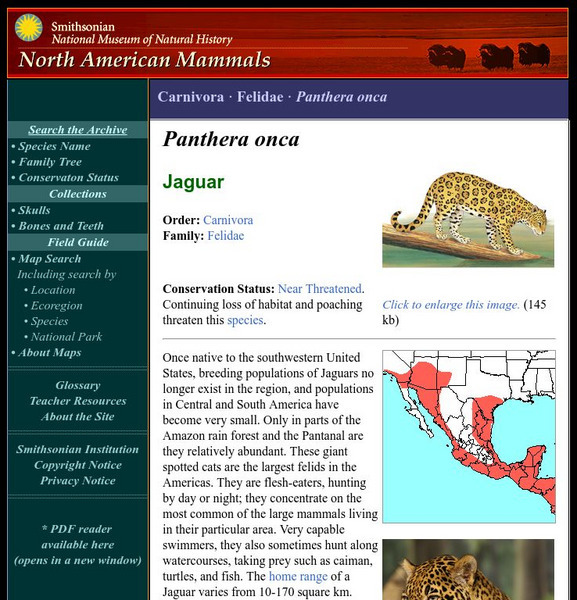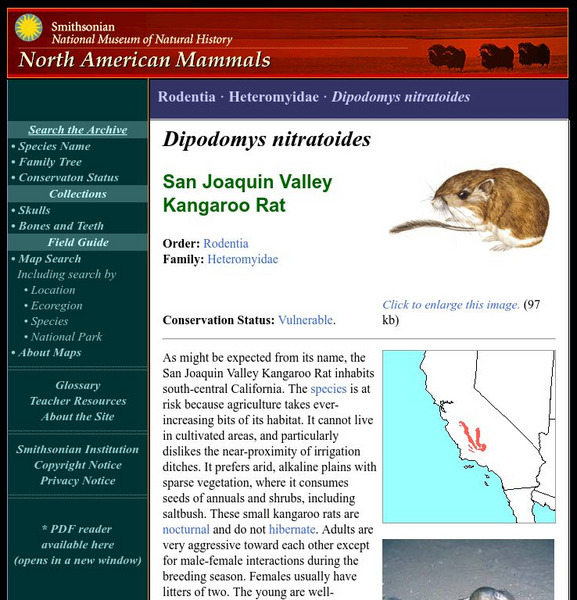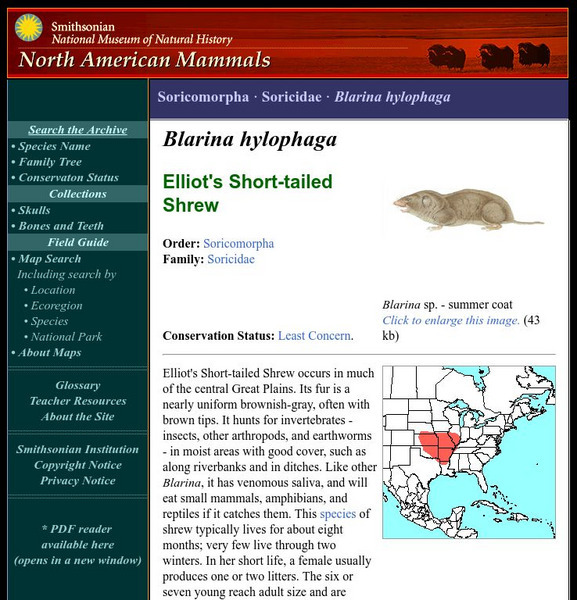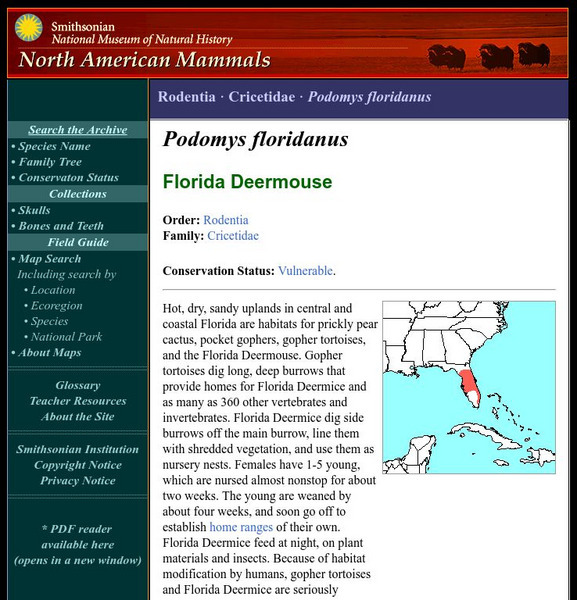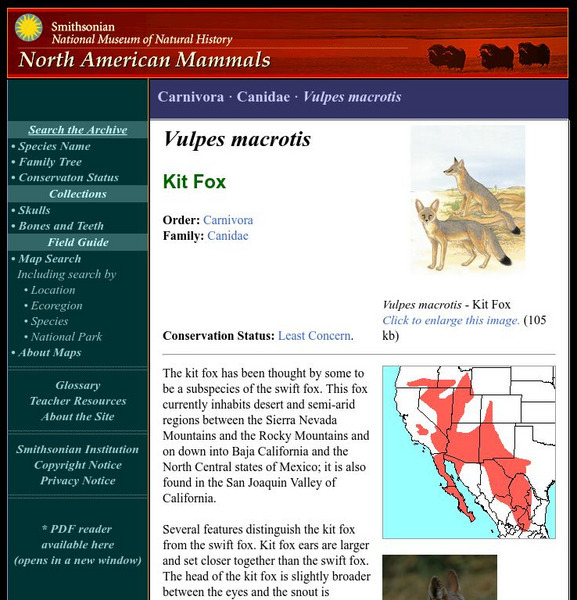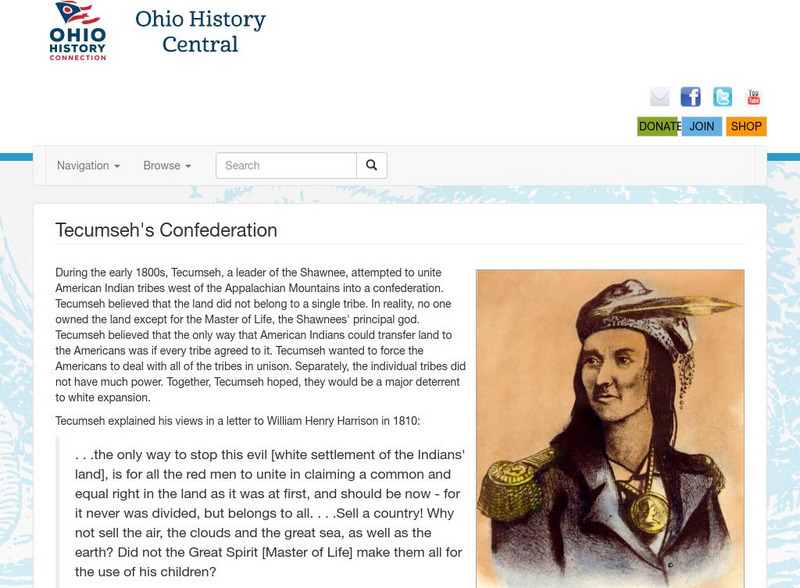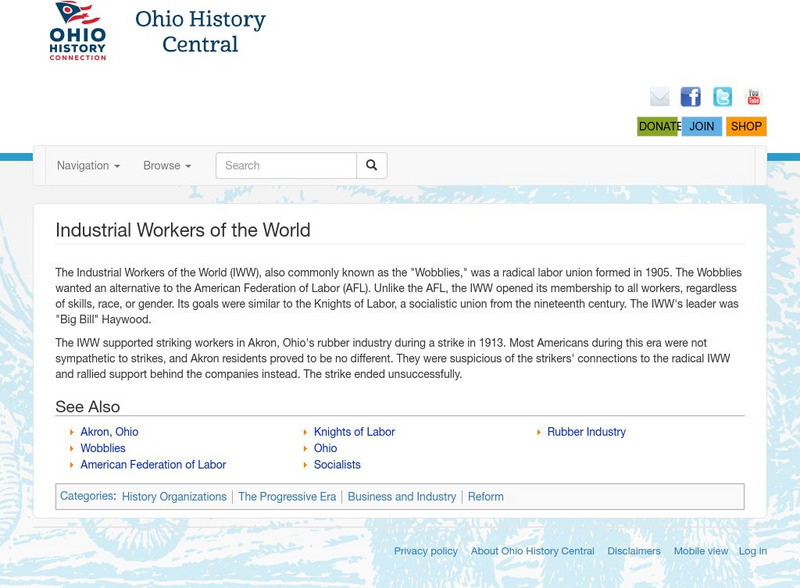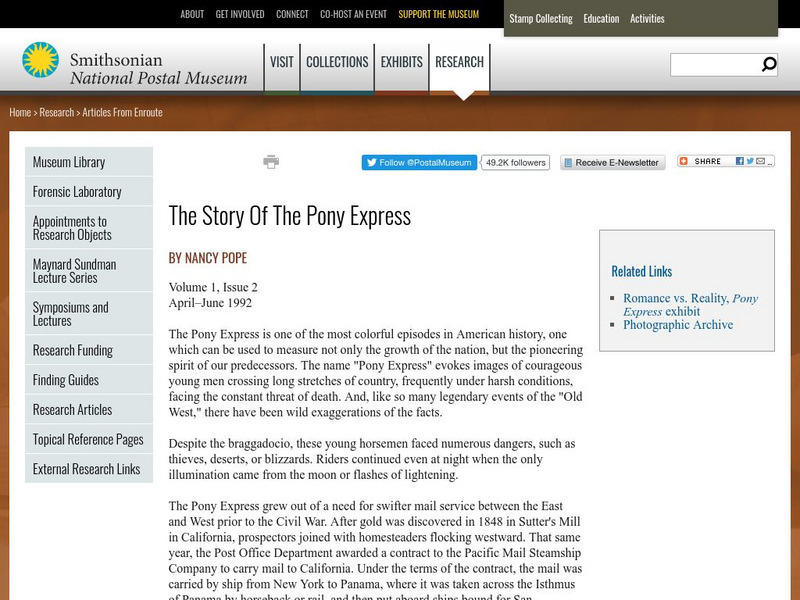Hi, what do you want to do?
Smithsonian Institution
National Museum of Natural History: American Mammals: Nelson's Pocket Mouse
Nelson's Pocket Mice live in the Chihuahuan Desert of north-central Mexico and adjacent parts of western Texas and southern New Mexico. They are found mostly in rocky areas where there are some shrubs to provide cover. Learn more about...
Smithsonian Institution
National Museum of Natural History: American Mammals: Wyoming Ground Squirrel
Wyoming Ground Squirrels are found in three separate regions of the western United States at elevations above 1,500 meters. Their geographic centers are in southwestern Montana, central and southwestern Wyoming, and southwestern Idaho,...
Smithsonian Institution
National Museum of Natural History: American Mammals: Wyoming Pocket Gopher
Wyoming Pocket Gophers are known only from a small area in south-central Wyoming. These rather small Pocket Gophers seem to prefer loose, gravelly, upland soils, often where greasewood is growing. Learn more about the Thomomys clusius,...
Smithsonian Institution
National Museum of Natural History: American Mammals: Pallas's Mastiff Bat
This free-tailed bat prefers warm climates and is most commonly found in northern South America, Central America, and the Caribbean Islands. It is believed that several colonies that have been found roosting in buildings in the Florida...
Smithsonian Institution
National Museum of Natural History: American Mammals: Narrow Faced Kangaroo Rat
The Narrow-faced Kangaroo Rat, also known as the Santa Cruz Kangaroo Rat, occurs in central coastal California where annual rainfall is 75 cm and temperatures are moderate. It requires well-drained, deep soils and is often found on...
Smithsonian Institution
National Museum of Natural History: American Mammals: Texas Kangaroo Rat
Texas Kangaroo Rats live in only a few counties of north-central Texas, although the species was once also present in Oklahoma. They prefer to live where soils have a high percentage of clay. Learn more about the Dipodomys elator, more...
Smithsonian Institution
National Museum of Natural History: American Mammals: Jaguar
Once native to the southwestern United States, breeding populations of Jaguars no longer exist in the region, and populations in Central and South America have become very small. Only in parts of the Amazon rainforest and the Pantanal...
Smithsonian Institution
National Museum of Natural History: American Mammals: Fresno Kangaroo Rat
As might be expected from its name, the Fresno Kangaroo Rat inhabits south-central California. The species is at risk because agriculture takes ever-increasing bits of its habitat. Learn more about the Dipodomys nitratoides, more...
Smithsonian Institution
National Museum of Natural History: American Mammals: Elliot's Short Tailed Shrew
Elliot's Short-tailed Shrew occurs in much of the central Great Plains. Its fur is a nearly uniform brownish-gray, often with brown tips. Learn more about the Blarina hylophaga, more commonly known as Elliot's Short-tailed Shrew, in this...
Smithsonian Institution
National Museum of Natural History: American Mammals: Florida Mouse
Hot, dry, sandy uplands in central and coastal Florida are habitats for prickly pear cactus, pocket gophers, gopher tortoises, and the Florida Mouse. Gopher tortoises dig long, deep burrows that provide homes for Florida Mice and as many...
Smithsonian Institution
National Museum of Natural History: American Mammals: Kit Fox
The kit fox has been thought by some to be a subspecies of the swift fox. This fox currently inhabits desert and semi-arid regions between the Sierra Nevada Mountains and the Rocky Mountains and on down into Baja California and the North...
Smithsonian Institution
National Museum of Natural History: American Mammals: Mexican Long Tongued Bat
Mexican long-tongued bats feed on fruits, pollen, nectar, and probably insects. The populations that summer in the United States migrate to Mexico and northern Central America in winter, following the blooming cycle of plants such as...
Curated OER
Hesquiaht Woman From the Central Nootka Tribe, British Columbia, 1916
View aspects of the history of the aboriginal peoples of Canada through photographs. Culture, ways of life, and struggles can be examined in this database of primary source images (most from the late nineteenth and early twentieth century).
University of Texas at Austin
Perry Castaneda Library Map Collection: Americas Historical Maps
This collection from the University of Texas Library Online of historical maps contains a wide variety of maps from various parts of the continent and from different parts of history. Each map is accompanied by a brief description and is...
Wikimedia
Wikipedia: Toltec
Wikipedia offers great information on the Toltecs, a Pre-Columbian Native American people who dominated much of central Mexico.
Other
Macrohistory and World Timeline: Rebellion Against Spain in Latin America
Read about the history of rebellions against Spanish rule and the leaders that led the independence movements in Mexico, Peru, Chile, and other Latin American countries.
Ohio History Central
Ohio History Central: Tecumseh's Confederation
This page describes Tecumseh's work toward an Indian confederacy that would be able to survive against the westward movement of whites.
Ohio History Central
Ohio History Central: Industrial Workers of the World
A very brief description of the Industrial Workers of the World and what they represented.
Smithsonian Institution
National Postal Museum: The Story of the Pony Express
This article explores the story of the Pony Express, the "speedy" mail service that once connected the Eastern U.S. with the West.
US Department of State
U.s. Department of State: Albany Plan of Union, 1754
Learn all about the Albany Plan of Union from this article from the U.S. Department of State. Find out why it was proposed, what the plan would provide for, and the results.
Curated OER
Usacmh: Defense of the Americas 7 December 1941 2 September 1945
This brochure from the Army's Center of Military History gives an extensive account of the little-reported on American theater of World War II. Read about the preparations for hemispheric defense, the few breaches of the defense, and the...
Curated OER
Adventure Learning Foundation: Costa Rica
Comprehensive reference tool with an abundance of country specific information about the Central American country of Costa Rica. Content covered includes photos, symbols, history, economy, geography, climate, population, culture, maps,...
Curated OER
Cr M01.gif (25783 Bytes)
Comprehensive reference tool with an abundance of country specific information about the Central American country of Costa Rica. Content covered includes photos, symbols, history, economy, geography, climate, population, culture, maps,...
Curated OER
Costa Rica provinces.png (7296 Bytes)
Comprehensive reference tool with an abundance of country specific information about the Central American country of Costa Rica. Content covered includes photos, symbols, history, economy, geography, climate, population, culture, maps,...








